- Details
The ACCC is reviewing the performance standards that NBN provides to its customers (telco retailers). This includes NBN response times to fix problems on its network and get consumer premises connected. Currently, these standards and any penalties for breaches are contained in commercial contracts with NBN’s customers. The ACCC is reviewing whether further measures are required to improve NBN’s service.
Read more: ACCC Inquiry into NBN Wholesale Service Standards: Second Discussion Paper
- Details
The Federal Government is reviewing Telstra’s Carrier Licence as the existing one is due to expire in April 2019. The Government has proposed to maintain the existing conditions of Telstra’s licence with some minor amendments for current policies.
ACCAN has proposed that the remaking of Telstra’s licence conditions offers the opportunity to improve Telstra’s network reliability framework that reports Telstra’s network performance. Telstra’s copper network will remain important in regional areas outside the fixed NBN footprint such that improved monitoring continues to be important after the NBN is rolled out.
- Details
Parts 7 and 8 of the Telecommunications Act ensure that broadband networks operate in a similar way, and to the benefit of consumers. They require network operators to offer services to any retail providers on request (offer open access on a non-discriminatory basis) and that they must be operated separate to the retail level (wholesale only). The ultimate aim is to ensure competitive networks exist that benefit consumer by increasing choice of retail providers.
Since 2012 Telstra has had an exemption from complying with these requirements in its South Brisbane Velocity network area. Other areas of Telstra’s fibre Velocity area are also exempt. These are scattered across the country, predominantly in areas of medium density population, including retirement villages, and greenfield developments (in Western Sydney, for example). These are areas populated with low income families, and older people on fixed incomes.
Read more: Telstra’s South Brisbane Velocity Network – time for change
- Details
 Telecommunication services are essential for ensuring public health and safety, promoting access to educational and employment opportunities as well as social inclusiveness. ACCAN’s Pre-Budget Submission 2019-20 identifies market gaps and provides recommendations on telecommunications initiatives that will benefit consumers including:
Telecommunication services are essential for ensuring public health and safety, promoting access to educational and employment opportunities as well as social inclusiveness. ACCAN’s Pre-Budget Submission 2019-20 identifies market gaps and provides recommendations on telecommunications initiatives that will benefit consumers including:
- Details
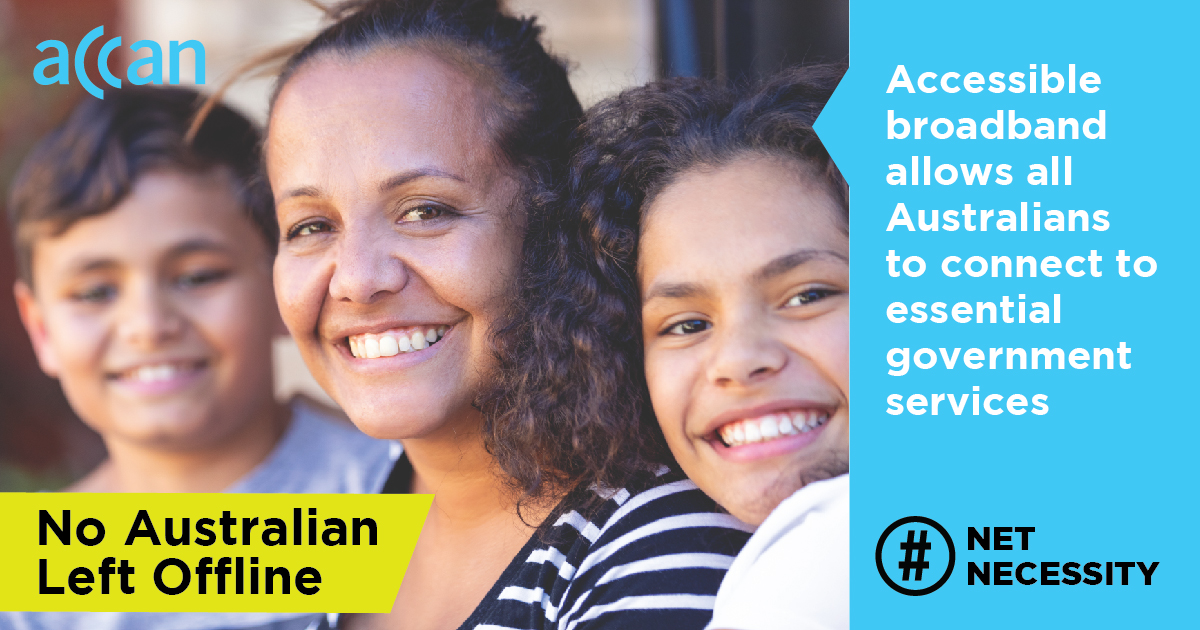 A new affordable home broadband product for financially stressed Australians on low incomes should be a key priority for political parties ahead of the 2019 Federal election, according to consumer organisation ACCAN.
A new affordable home broadband product for financially stressed Australians on low incomes should be a key priority for political parties ahead of the 2019 Federal election, according to consumer organisation ACCAN.
Australia’s peak body representing telecommunications consumers, ACCAN, is urging the nation’s political parties to consider a proposal for a wholesale broadband concession that would provide financially stressed Australians with cheaper home broadband.
ACCAN considers that a 50 mbps unlimited broadband service offered at a wholesale price of $20 per month by NBN Co to households receiving government financial support to be the most effective way to achieve affordable broadband for all. This would mean eligible households would pay approximately $30 per month for unlimited broadband – almost halving the current average cost.
Initial estimates indicate that providing this concession to the 1 million plus households on the lowest incomes can be budget neutral.
Read more: No Australian Left Offline: ACCAN pushes for affordable broadband
- Details
The supporters of No Australian Left Offline want affordable broadband. Affordable broadband is a home internet service that enables all Australians to be online regardless of their personal circumstances or where they live, without putting them into financial stress.
With all Australian government services to be available online by 2025, it’s more important than ever that there is No Australian Left Offline.
Over one million Australians will continue to have access to essential government services with affordable broadband.

The benefits of this Federal budget neutral policy

Economic benefits of affordable broadband
- Approximately $20 billion saved through move to online services
- Stronger economy: increases in average incomes of 0.85% per person
- New business & employment: up to 5400 businesses formed + an additional 3400 to 6400 self-employment opportunities in areas with high NBN rollout
- Increased tax revenue through higher economic activity, and reduced unemployment
- Reduced cost & barriers to access for households when accessing essential services, particularly for Australians in regional and remote areas
Without affordable home broadband
- 1 Million+ low-income households at risk of not switching over to NBN
- Children struggle to complete homework and keep up at school
- Young people can’t prepare for the post-school world of further training, education or employment
- Job Seekers find it difficult to get jobs and training to lift themselves and their families out of poverty
- Elderly or less mobile people find it harder to access support services and overcome social isolation
In Australia there are one million households that are at risk of not switching over to the NBN because of the cost. This limits the opportunities of these households, and threatens the underlying economics of the NBN by reducing take-up of services. Reduced take-up means lower NBN revenues and reduced capacity to provide a return to government.
How can we achieve affordable broadband?
ACCAN proposes a 50 mbps unlimited broadband service offered at a wholesale price of $20 per month by NBN Co to households receiving government financial support.
This would mean eligible households would pay approximately $30 per month for unlimited broadband – almost halving the current average cost.
We estimate that providing this concession to the 1 million + households on the lowest incomes can be Federal budget neutral, and support these households to be connected.
Downloads:
Download: ![]() No Australian Left Offline - Policy document97.5 KB
No Australian Left Offline - Policy document97.5 KB
Download: ![]() No Australian Left Offline - Policy document752.71 KB
No Australian Left Offline - Policy document752.71 KB
Download: ![]() No Australian Left Offline - Affordable Broadband for the regions102 KB
No Australian Left Offline - Affordable Broadband for the regions102 KB
Download: ![]() No Australian Left Offline - Affordable Broadband for the regions759.57 KB
No Australian Left Offline - Affordable Broadband for the regions759.57 KB
Download: ![]() No Australian Left Offline - Media release3.1 MB
No Australian Left Offline - Media release3.1 MB
Download: ![]() No Australian Left Offline - Media release982.99 KB
No Australian Left Offline - Media release982.99 KB
Download: ![]() A3 colour brochure2.2 MB
A3 colour brochure2.2 MB
Supporters of No Australian Left Offline
This email address is being protected from spambots. You need JavaScript enabled to view it.






![]()

![]()


![]()
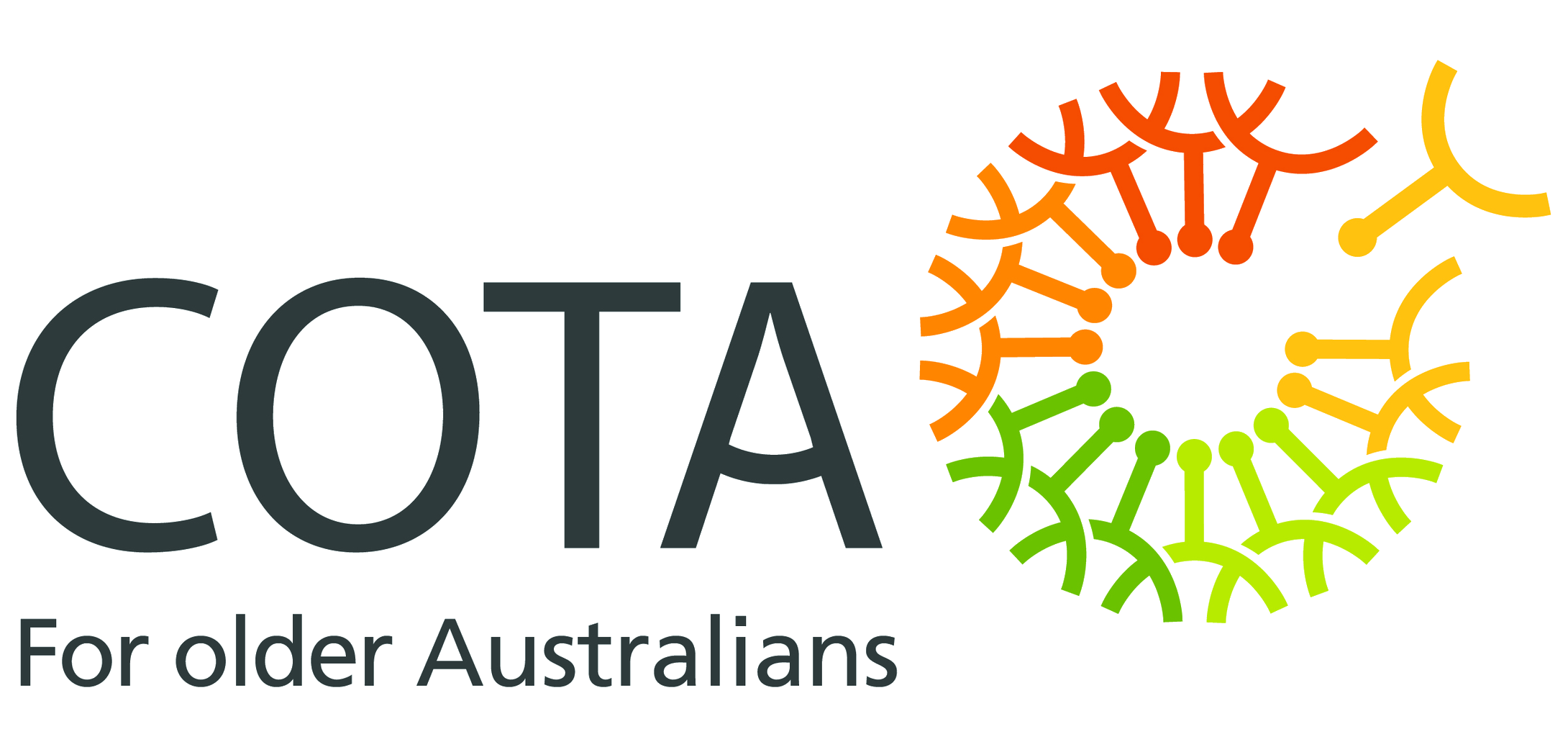



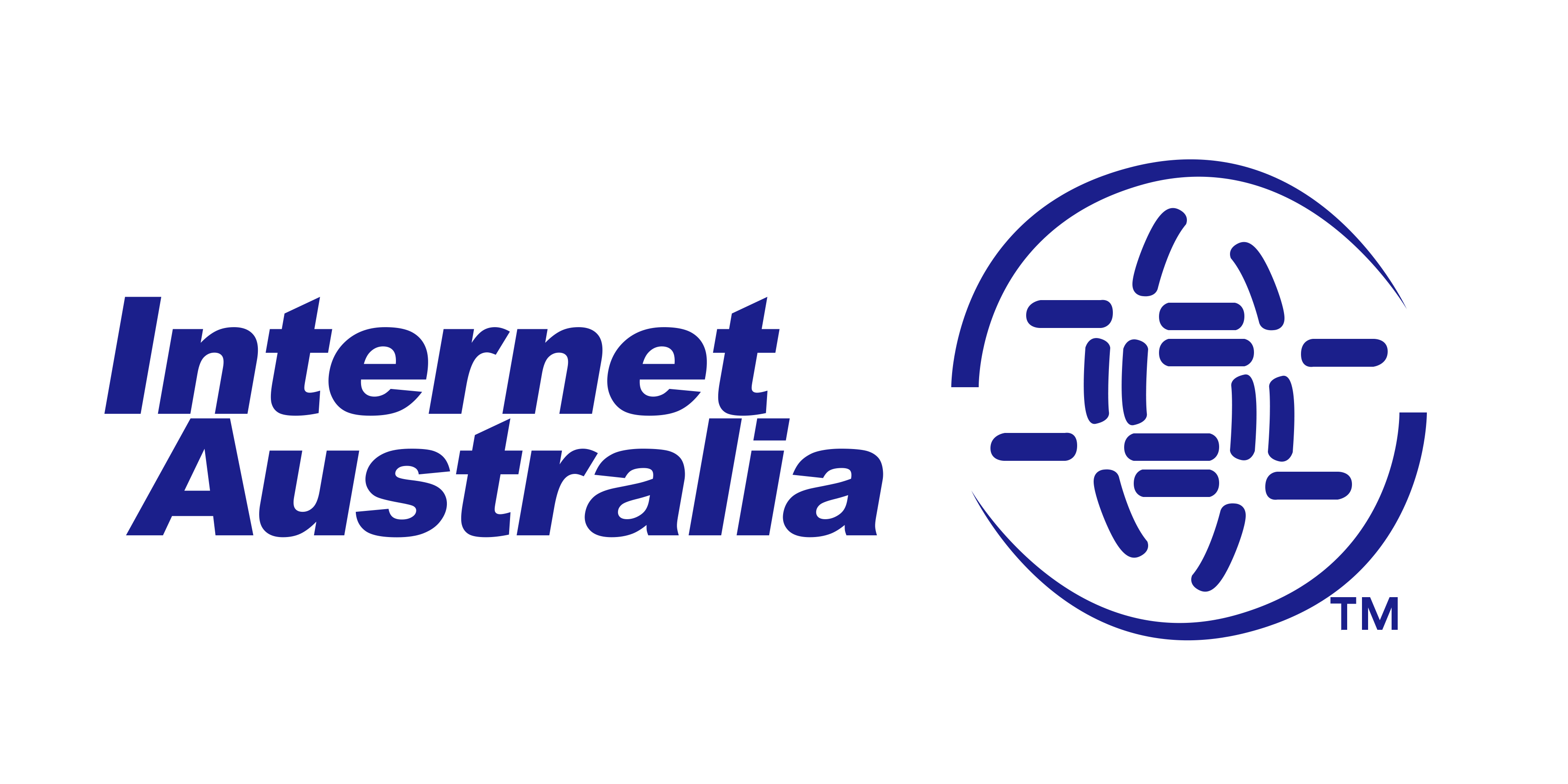

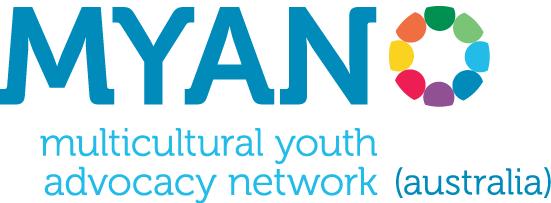


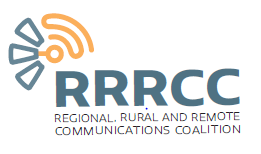

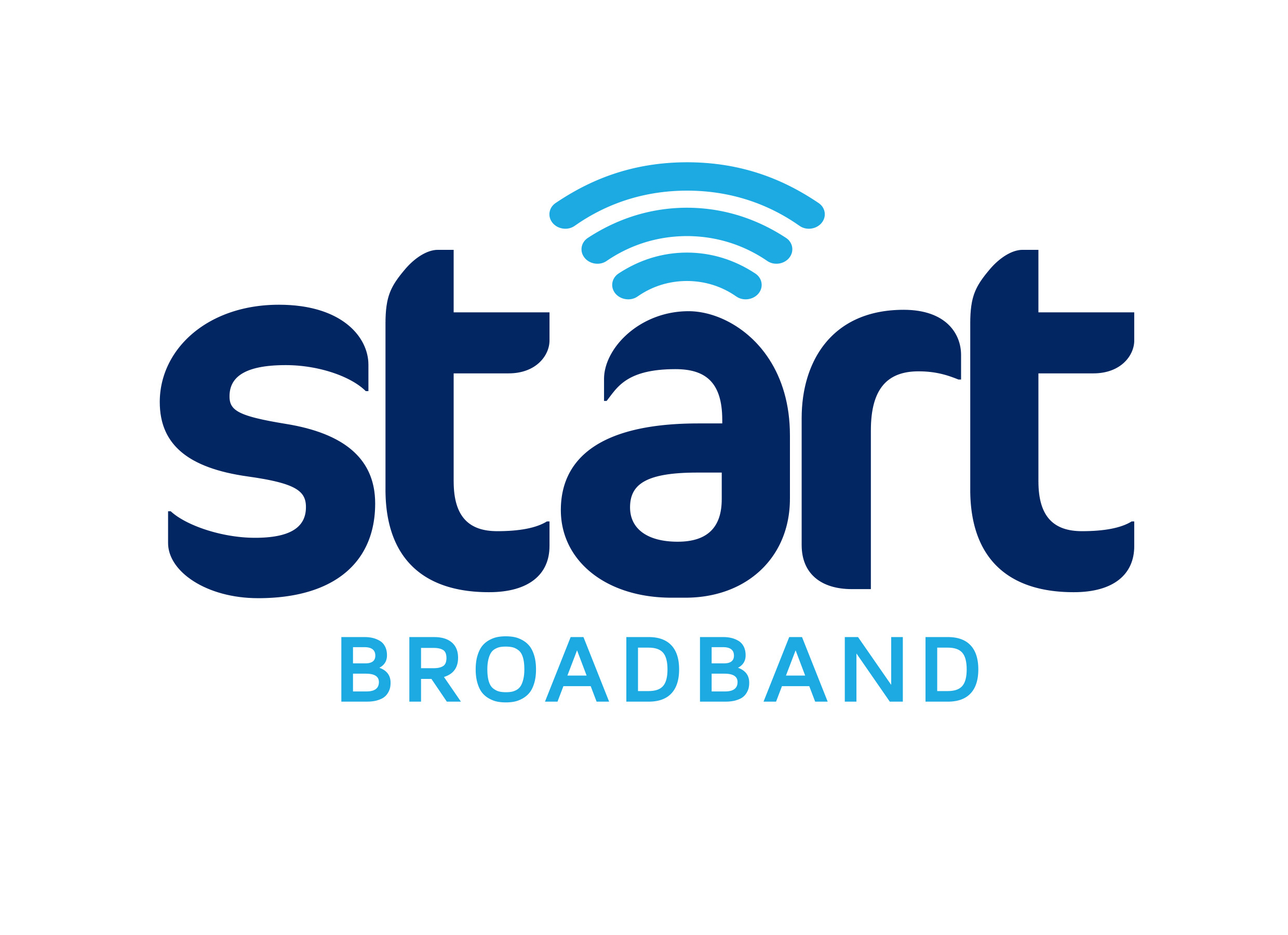





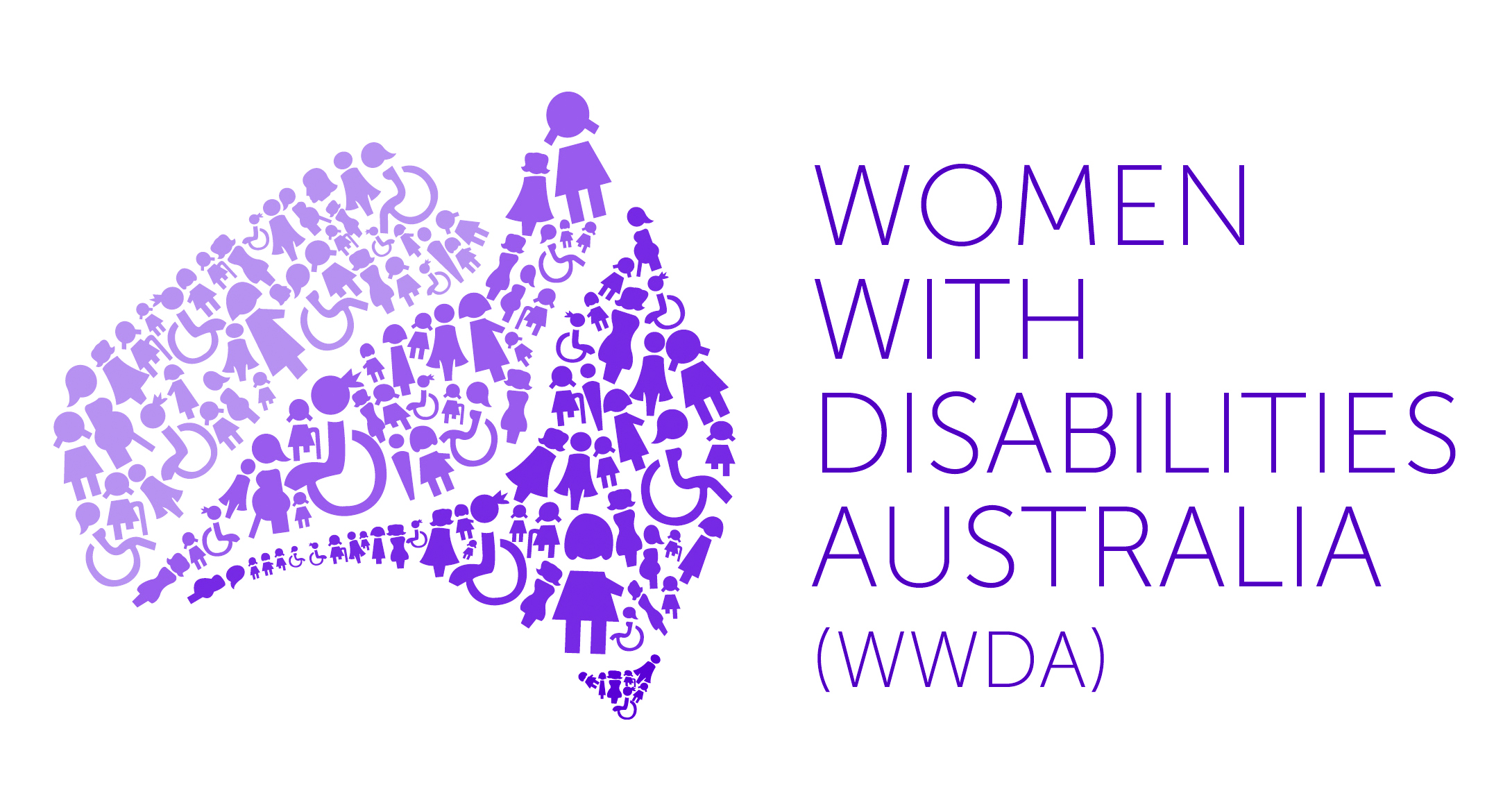

- Details
The summary below outlines ACCAN's activities from 1 September – 30 November 2018.
- Details
 Australians are being put at risk due to inadequate consumer protection frameworks around the reliability of telecommunications services, ACCAN has warned the Government’s latest Consumer Safeguard Review.
Australians are being put at risk due to inadequate consumer protection frameworks around the reliability of telecommunications services, ACCAN has warned the Government’s latest Consumer Safeguard Review.
Read more: Telco accountability is key for Consumer Safeguards Review: ACCAN
- Details
Parts 7 and 8 of the Telecommunications Act provide an important basis to ensure that broadband networks operate in a similar way and to the benefit of consumers. They require network operators to offer services to any retail providers on request (offer open access on a non-discriminatory basis) and that they must operate separate to the retail level (wholesale only). While these specify the operation of networks, the ultimate aim is to ensure competitive networks exist that benefit consumer by increasing choice of providers.
Since 2012 Telstra have had an exemption to comply with these requirements in the South Brisbane network area. Telstra have now requested a further extension, with the Minister for Communications and the Arts has proposing an extension to January 2020 (designated day).
Read more: Telstra Request for TA Exemption South Brisbane network
- Details
Download: ![]() ACCAN Magazine - Issue 30 Summer 2018.pdf1.23 MB (Note: reading order not accessible)
ACCAN Magazine - Issue 30 Summer 2018.pdf1.23 MB (Note: reading order not accessible)
Download accessible version: ![]() ACCAN Magazine Issue 30 Summer 2018 - accessible version.docx37.21 KB
ACCAN Magazine Issue 30 Summer 2018 - accessible version.docx37.21 KB
- Details
 The Regional, Rural and Remote Communications Coalition (RRRCC) has welcomed the recommendations of the 2018 Regional Telecommunications Review: Getting it right out there.
The Regional, Rural and Remote Communications Coalition (RRRCC) has welcomed the recommendations of the 2018 Regional Telecommunications Review: Getting it right out there.
The report is the culmination of submissions and consultative forums held across regional, rural and remote Australia to resolve the connectivity issues facing our communities now and into the future.
Read more: Time is now for new investment in bush telecommunications
- Details
 ACCAN welcomes the Morrison Government’s commitment to preserve the current Universal Service Obligation (USO) arrangements to guarantee fixed voice services to Australians, however stresses the urgency in extending guarantees to include broadband services through legislation.
ACCAN welcomes the Morrison Government’s commitment to preserve the current Universal Service Obligation (USO) arrangements to guarantee fixed voice services to Australians, however stresses the urgency in extending guarantees to include broadband services through legislation.
The USO refers to the obligation to ensure that all Australians can access a Standard Telephone Service, regardless of where they live or work. Telstra is currently contracted to deliver this obligation and uses a range of technologies to do so, including its fixed copper network, and radio and wireless services.
Read more: ACCAN welcomes USO preservation, pushes for broadband inclusion through legislation



